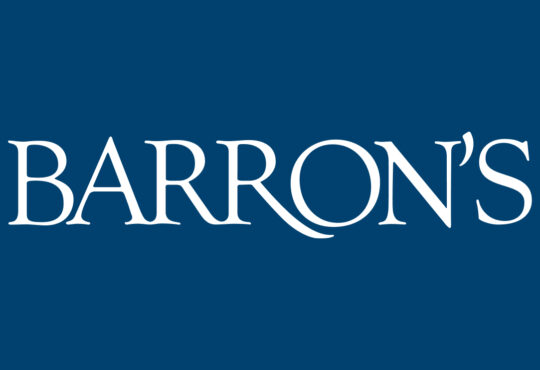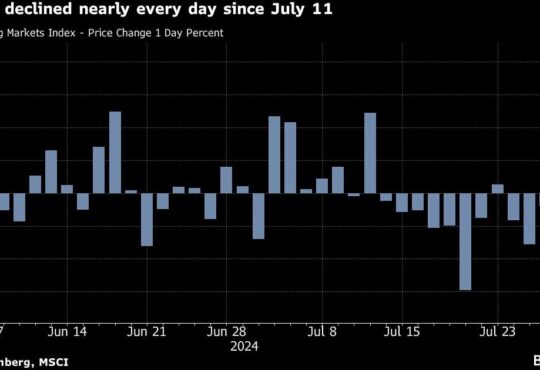Sept 14 (Reuters) – Shares in SoftBank’s Arm Holdings (ARM.O) soared almost 25% above their Nasdaq debut price on Thursday, rekindling investor hopes for a turnaround in the moribund market for initial public offerings (IPO).
The stock, which had opened at $56.10, notched a 24.68% gain to close at $63.59, giving the British chip designer a valuation of $65 billion in its return to public markets following a seven-year absence. The IPO had priced at $51.
Arm’s strong performance suggests that investor demand for initial public offerings, which had been hit hard over the last two years by geopolitical tensions and higher interest rates, may be on the rebound, market participants said.
“It is a successful IPO,” said Salman Malik, partner at Anson Funds in Toronto. “It will have a positive impact on the IPO pipeline and shows the AI theme is alive and kicking.”
Several companies are scheduled to go public in coming weeks, including grocery delivery service Instacart, German footwear maker Birkenstock, and marketing automation platform Klaviyo.
If those IPOs succeed, they will likely trigger a wave of stock market launches in 2024, bankers and analysts said.
Arm secured a valuation of $54.5 billion on Wednesday after pricing its IPO at the top end of the marketed range, netting $4.87 billion for SoftBank (9984.T), which still holds a 90.6% stake.
The Japanese investment giant took Arm private in 2016 for $32 billion. It has been looking to cash out some of its stake since at least 2020, when it agreed to sell Arm to chipmaker Nvidia (NVDA.O) in a $40 billion deal. It had to abandon that plan due to regulatory roadblocks.
Since then it has pivoted towards an IPO, though that also came with its own hurdles, including run-ins with the British government which was campaigning for the chip designer to list in London.
Despite a strong showing on Thursday, Arm’s debut marks a climb-down from the $64 billion it was valued at last month when SoftBank bought the 25% stake of Arm it did not directly own from its Vision Fund unit.
But that has not dampened SoftBank CEO Masayoshi Son’s enthusiasm for Arm, the chip designer’s Chief Financial Officer Jason Child said in an interview on Thursday.
“He is quite bullish on the company. The price today or even in the near term isn’t really his focus, the focus is where’s the price gonna be in the in the future.”
Arm is indispensable in the tech hardware ecosystem as its chip designs power nearly every smartphone in the world. It disclosed last month that its annual revenue had dropped 1% as its two largest markets – smartphones and personal computers – slumped.
Child said Arm can still boost sales as it was reaping a 5% royalty rate on chips made with the newest technology versus 3% with the previous version. Premium phones are more likely to use Arm’s most advanced technology.
The closest valuation comparison to Arm is circuit designer Cadence Design Systems, said some bankers who have worked on the IPO. Cadence trades at 35 times of 2025 earnings, while Arm at $51 per share trades at 29 times earnings.
‘HUMILITY’
Investors have over the last year begun to pay more attention to profitability, shunning cash-burning startups that had in 2021 fetched lofty valuations on the back of a record year for deals.
The 10 biggest U.S. IPOs of the past four years are down an average of 47% from the closing price on their first day of trading, the analysis of LSEG data as of Friday showed.
Investors who bought at the top of an intra-day price surge that often occurs in high-profile listings would have fared even worse, with an average loss of 53%.
“The deal was priced within its range, which tells me that investors are price sensitive and boards and investment banks are showing a little bit of humility,” said Jordan Stuart, a portfolio manager at Federated Hermes.
While Arm’s strong debut will likely encourage other technology companies to move forward with their IPOs, it does not likely signal a return to the frothy market of 2021, Stuart said.
Sectors such as biotech will likely remain dormant for the next one to two years until interest rates begin to fall, making stocks more attractive relative to bonds, he said.
“You will see not only a discernment among investors but some sectors completely absent from the market until the rate regime changes.”
NASDAQ SCORES
Arm’s debut also gives the Nasdaq (NDAQ.O), which won the listing, a potential boost to future revenue growth.
Large deals like Arm provide the Nasdaq with short-term publicity and is a long-term bet to boost recurring revenue the exchange collects from annual listing fees, analysts said.
“Anytime it (Nasdaq) gets a new listed company, it’s able to drive revenue not just through the listing, but also through the other services that it sells to these listed companies on their exchange,” said Andrew Bond, managing director and senior fintech analyst, at Rosenblatt Securities.
Reporting by Echo Wang and Laura Mathews in New York, Stephen Nellis in San Francisco, Manya Saini and Niket Nishant in Bengaluru; Additional reporting by Medha Singh, Carolina Mandl, Chibuike Oguh, Anirban Sen, David Randall, and Akash Sriram; Editing by Arun Koyyur, Michelle Price, Richard Chang and Ira Iosebashvili
Our Standards: The Thomson Reuters Trust Principles.





